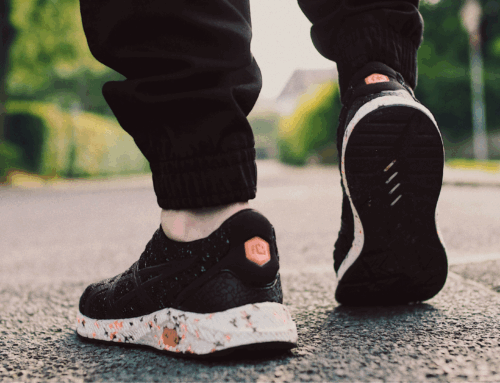Post-traumatic stress disorder (PTSD) is a mental illness that can develop after a person experiences or witnesses a terrifying or life-threatening event or series of events. We usually associate the disorder with war, or acts of terror and extreme violence, but a difficult childbirth, a car accident, the death of a loved one, chronic illness, or emotional abuse can also cause PTSD.
The condition encompasses a range of symptoms and can be different for everyone. Some people experience flashbacks while others have panic attacks. Depression and anxiety are hallmarks, and those with PTSD tend to avoid people, places, and things that can act as “triggers” of their often debilitating symptoms. What is universal, though, is that PTSD interferes with daily functioning. Those who have the condition are prevented from living their best lives. The good news is that there is hope. You can overcome PTSD.
When I was diagnosed with post-traumatic stress disorder, I barely reacted. The recent birth of my daughter had been traumatic; the baby and I had almost died. A few short weeks after my daughter was born, my father unexpectedly passed away. Caring for an infant with health problems while grieving for my father, with whom I’d been very close, proved too stressful. I had trouble sleeping, and when I slept, I suffered from nightmares as well as flashbacks of my daughter’s difficult delivery. I avoided places, activities, and people that I’d enjoyed before, and my thinking was extremely negative. I feared that more bad things were right around the corner.
One of the hardest parts of dealing with PTSD is how hard we can be on ourselves. We invalidate our own feelings, thinking that we have no right to feel this way. Others probably have it worse, we tell ourselves. There is absolutely no shame in suffering from post-traumatic stress disorder; it doesn’t matter if your condition stemmed from an abusive boyfriend or from being a prisoner of war. We cannot compare our experiences to others. Everyone’s bodies and minds react to events differently, and you didn’t get PTSD from not being strong enough. Mental illness should never be stigmatized like that.
An estimated 24.4 million people in American alone suffer from PTSD, with women being twice as likely as men to experience the condition. Sadly, it’s very common in our society, but it’s important to know that it can go away. If you have PTSD, like I did, it doesn’t have to be forever. If I was able to find my way to bliss, anyone can. And the first step is to make the choice to heal.
For me, actually getting diagnosed with PTSD was a turning point that led me in the direction of healing. Here are the holistic tools that finally helped me overcome my PTSD:
1. Taking my medication, as prescribed.
I took the medication that I was prescribed because it allowed me to dip my toes back into the pool of life, and it helped to lift the fog that had been hanging over me. Eventually, I started looking for a different, more sustainable path to healing. Medication provided a bridge and helped me begin to feel better, but in order to fully overcome my PTSD, I needed to take an integrative approach that addressed my mind, body, and spirit. When we care for all parts of ourselves, our healing can be holistic and transformative. For me, it was. By detoxifying my mind and my body through meditation, yoga, and nutrition, I was able to find a long-term solution to deal with my trauma.
2. Calming my mind with meditation.
Meditation taught me to prioritize myself, and a consistent meditation practice can have life-changing effects that alter the way we react to unavoidable negative events. Instead of panicking and retreating, I have come to a place of calm, acceptance, and gratitude that allows me to make healthy decisions and deal with obstacles—instead of freaking out. Meditation has cleansed my mind of fear, self-bashing thoughts, and dread. I now have a much more positive outlook.
– Pam Butler
Read more: Tools To Help Overcome PTSD







Leave A Comment